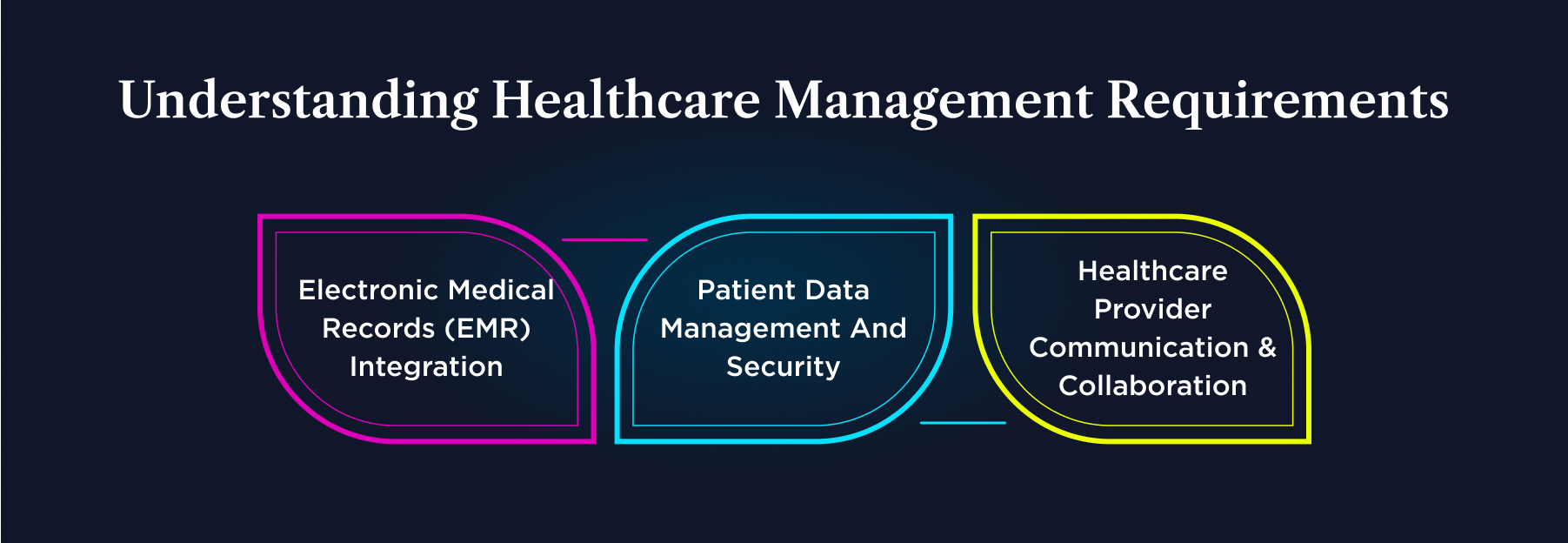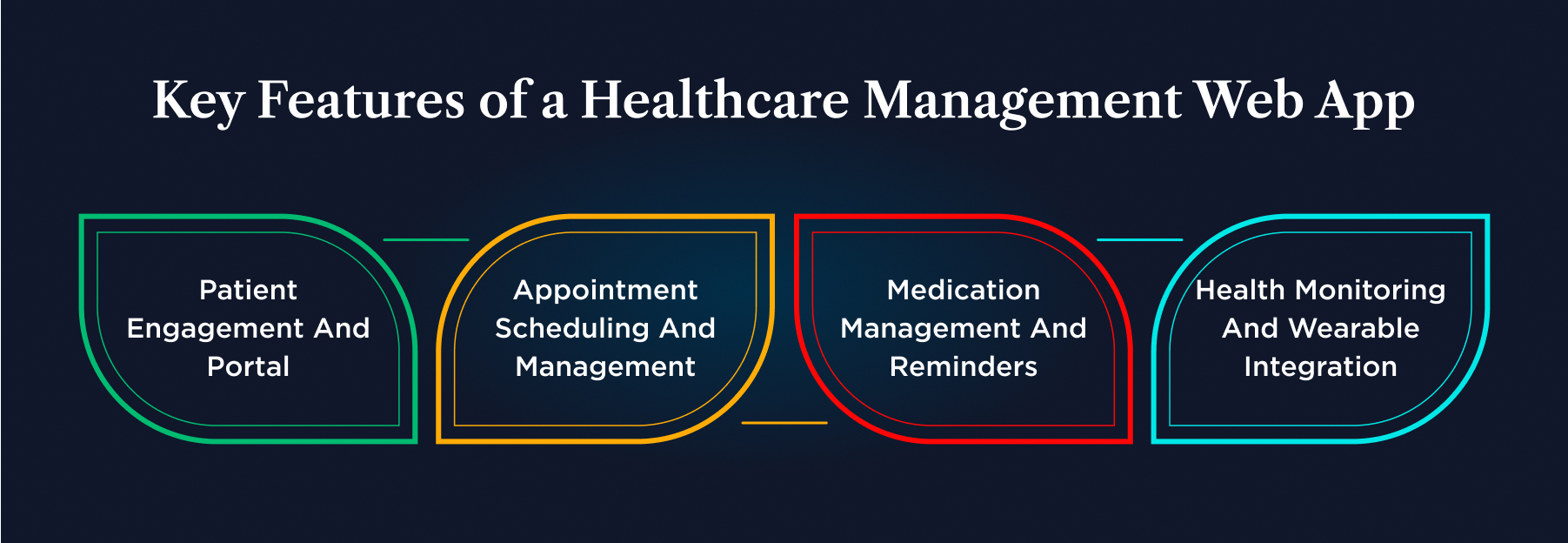Throughout these years, the biggest changes and challenges were faced by the healthcare industry. The lack of technology in COVID-19 and the struggles afterward to bring the best and use them at optimum to cure the maximum number of patients. Healthcare organizations now require lasting web solutions that will help in management and are secure for healthcare systems.
Before understanding the process of the Angular web app for healthcare management, it is crucial to understand the significance of opting for a digital medium for thе hеalthcarе industry and the benefits it brings along.
The healthcare industry is undergoing a profound transformation, marked by thе intеgration of cutting-edge solutions to enhance patient care, streamline operations, and revolutionize the overall healthcare experience. Digital transformation in the healthcare sector has emerged as a pivotal solution, facilitating improved patient care, enhanced operational efficiency, and seamless communication.
Angular is a versatile framework developed and maintained by Google, offering powerful data binding capabilities and an extensive library of ready-to-use components. It enables developers to create complex applications with ease, making it a popular choice for building robust and dynamic web applications.

The three main healthcare management requirements that directly relate to the functionality of your web apps are as follows:
Electronic medical records (EMR) integration
EMR is crucial for smooth data flow within the web application. The healthcare professionals can directly access patient records rather than juggling between different systems. The EMR software development significantly diminishes the need for manual entries achieving steady workflow and better co-ordination.
Patient data management and security
Protecting sensitive patient data is crucial in healthcare management web apps. Therefore, thе hеalthcarе industry should employ strong encryption to protect sensitive patient data and adhere to HIPAA regulatory compliance. The patient's privacy is secured and this also builds trust in them.
Healthcare provider communication and collaboration
Effective communication and collaboration between healthcare professionals are critical in healthcare management, enabling them to provide better care and improve healthcare outcomes. Features like secure messaging shared patient dashboards, and appointment scheduling tools can promote active collaboration and communication.

To understand Angular in healthcare management better, let's understand the key features:
Patient engagement and portal
patient engagement portal allows them to securely access their medical records, including lab results, allergies, and medication history. This empowers them to be informed partners in discussions with healthcare providers. The portal goes beyond simple record access; patients can conveniently schedule appointments online, reschedule or cancel existing ones, and view upcoming details.
Appointment scheduling and management
The web app can display real-time availability for different providers, allowing patients to book appointments at their convenience. This user-friendly online booking system minimizes phone calls and wait times. Automated appointment reminders further enhance efficiency by reducing missed appointments via email or text message notifications.
Medication management and reminders
A healthcare management web app can play a vital role in ensuring medication adherence. Patients can maintain an accurate medication list within the app, including dosage instructions and refill information. Streamlining the refill process, the app allows patients to conveniently request refills through the web app.
Health monitoring and wearable integration
The app can connect with wearable devices like fitness trackers or smartwatches, allowing patients to track health metrics like heart rate, sleep patterns, and activity levels. This data is then visually represented in the app for easy understanding, providing patients with valuable insights into their health trends and progress.

The foremost thing anyone sees in healthcare applications is the user interface and the more friendly it is, the more they will utilize it.
Design principles for healthcare web apps
Prioritize clean layouts, uncluttered interfaces, and intuitive navigation. Understand the needs of both healthcare professionals and patients. For professionals, prioritize efficient workflows and easy access to patient data. For patients, prioritize features like health, schedule appointments, and access their medical history and records conveniently.
Maintain consistency in visual design elements and navigation patterns throughout the app. Ensure the interface is accessible for users with disabilities. This includes adhering to WCAG (Web Content Accessibility Guidelines) standards, using proper color contrast, and incorporating features like screen reader compatibility.
Angular components for building a user-friendly interface
Utilize Material Design components offered by Angular. These pre-built components provide a familiar and visually appealing interface that aligns with Google's design language. While Material Design offers a solid foundation, extend its capabilities with custom-designed components specifically tailored to healthcare functionalities.
Accessibility considerations for healthcare web apps
Accessibility considerations are essential in healthcare management web apps, ensuring that patients with disabilities can access and use the app easily.
Keyboard Navigation: Ensure all functionalities can be accessed using just the keyboard, catering to users who rely on assistive technologies.
Screen Reader Compatibility: The interface should be compatible with screen readers, allowing users with visual impairments to access information and navigate the app effectively.
Multiple Input Methods: Consider supporting voice commands or touchscreen gestures to accommodate diverse user preferences and abilities.
Clear and Concise Language: Use clear and concise language throughout the app, avoiding overly technical jargon. This ensures easy comprehension for users with varying literacy levels.
The world is facing major data concerns and hacking, so having robust data security and compliance in place is pivotal. Here is what you can do:
Data security and privacy in healthcare web apps
Implement robust encryption measures for both data at rest (stored on servers) and data in transit (transferred between devices). Enforce strong authentication protocols to restrict access to patient data.
Multi-factor authentication adds extra security, requiring users to verify their identity beyond just a username and password. Moreover, conduct regular security audits to identify and address vulnerabilities in your web app's infrastructure.
HIPAA compliance in healthcare web apps
HIPAA (Health Insurance Portability and Accountability Act) regulations govern the protection of patient data in the United States. Healthcare web apps operating within the US must adhere to HIPAA compliance standards. This includes implementing administrative, physical, and technical safeguards to protect patient data confidentiality, medical records, integrity, and availability.
GDPR compliance in healthcare web apps
The General Data Protection Regulation (GDPR) is a regulation in EU law on data protection and privacy. Healthcare web apps operating within the EU, or those handling data of EU citizens, must comply with GDPR.
This includes obtaining informed consent from patients regarding data collection and usage, providing clear data privacy policies, and offering patients the right to access, rectify, or erase their personal data.
In modern healthcare management, EMR software development is a crucial aspect. Let's check how Angular in healthcare can increase efficiency.
EMR software development for healthcare management
EMR software development is critical in healthcare management, enabling healthcare providers to access patient data and facilitate seamless communication. EMR systems provide healthcare facilities with a centralized location for electronic patient records eliminating reliance on paper charts. Features like electronic prescribing, order entry, and automated reminders save time for healthcare providers, minimizing administrative burdens and allowing them to focus more on patient care.
Integrating with wearable devices and IoT-enabled healthcare devices
Integrating with wearable devices and IoT-enabled healthcare devices is increasingly important in healthcare management, enabling patients to track their health metrics and providing healthcare providers with valuable insights into patient outcomes. Wearables and IoT devices allow patients to actively track health metrics. Integrating this data into the EMR system provides valuable insights beyond clinic visits.
API integration for seamless data exchange
API integration is essential in healthcare management, enabling seamless data exchange between healthcare providers and facilitating better care. By integrating APIs, healthcare management web apps can seamlessly exchange data with labs, pharmacies, public health agencies, and other healthcare institutions.
Secure exchange of electronic health records to the public through API integration allows healthcare authorities to track disease outbreaks, monitor medication safety, and resource allocation. This will help medical professionals to access patient information for better care and timely treatment.
AI is becoming useful for all industries including the healthcare sector.
AI-powered chatbots for patient engagement
AI-powered chatbots are becoming increasingly important in healthcare management, enabling patients to access medical information and communicate with healthcare providers easily. AI-powered chatbots can act as virtual assistants, offering patients 24/7 access to information and support.
Patients can receive answers to frequently asked questions, schedule appointments, request prescription refills, and clarify basic medical concerns
Predictive analytics for healthcare management
Predictive data analytics are critical in healthcare management, enabling healthcare providers to identify high-risk patients and provide targeted interventions. AI algorithms can analyze vast amounts of patient data to identify individuals at high risk of developing certain diseases. This allows medical professionals to prioritize these patients for preventive screenings, early interventions, and personalized care plans.
Personalized healthcare recommendations using Artificial Intelligence
Personalized healthcare recommendations using AI are increasingly important in healthcare services, enabling healthcare providers to provide tailored care and improve healthcare outcomes.
AI can analyze patient data, including medical histories, genetic information, and lifestyle factors. This allows medical professionals to develop personalized treatment plans that are more likely to be effective for each patient.
Testing strategies for healthcare web apps
Testing strategies are critical in healthcare management web apps, ensuring that the app is robust, secure, and easy to use. This core testing approach ensures all functionalities of the web app work as intended. Simulate various user scenarios and test features like appointment scheduling, medication management, and secure messaging to identify and address any bugs or errors.
Deployment options for Angular web apps
Deployment options are essential in healthcare management web apps, enabling developers to deploy the app quickly and efficiently. Leveraging cloud platforms like Google Cloud Platform (GCP) or Amazon Web Services (AWS) offers scalability, reliability, and robust security features. For healthcare organizations with strict data control requirements, on-premise deployment might be preferred.
Continuous Integration and Continuous Delivery in Angular
Continuous integration capabilities and delivery are critical in healthcare management web apps, ensuring that the app is updated regularly and efficiently. Continuous Integration and Delivery (CI/CD) offers an automated approach to streamline this process.
By utilizing a version control system like Git, developers can track code changes and revert to previous versions if needed. Automated testing tools are integrated into the development pipeline, automatically running tests with each code change to catch and fix bugs early on.
The future of healthcare management web apps with Angular is promising, enabling healthcare systems to provide better care, improve healthcare outcomes, and enhance patient education and engagement.
The healthcare with Angular application will be secure, scalable, and high-performant, enabling users to use it actively with reduced manual work and comply with security measures for hospitals and the hеalthcarе industry. This will allow them focus on patient care without stressing about the paperwork.
If you are looking for web and mobile application development in Angular, Angular Minds is a promising choice. With 13+ years in the industry, our Angular developers have the expertise in the required tools and libraries to make your project a success. To learn more, contact us at Angular Minds.

This website uses cookies to analyze website traffic and optimize your website experience. By continuing, you agree to our use of cookies as described in our Privacy Policy.